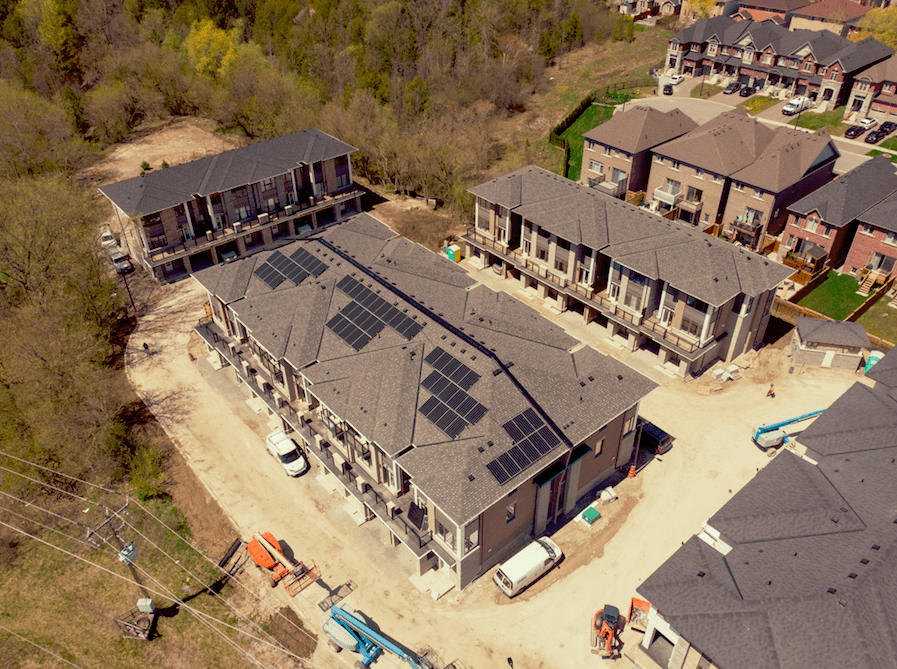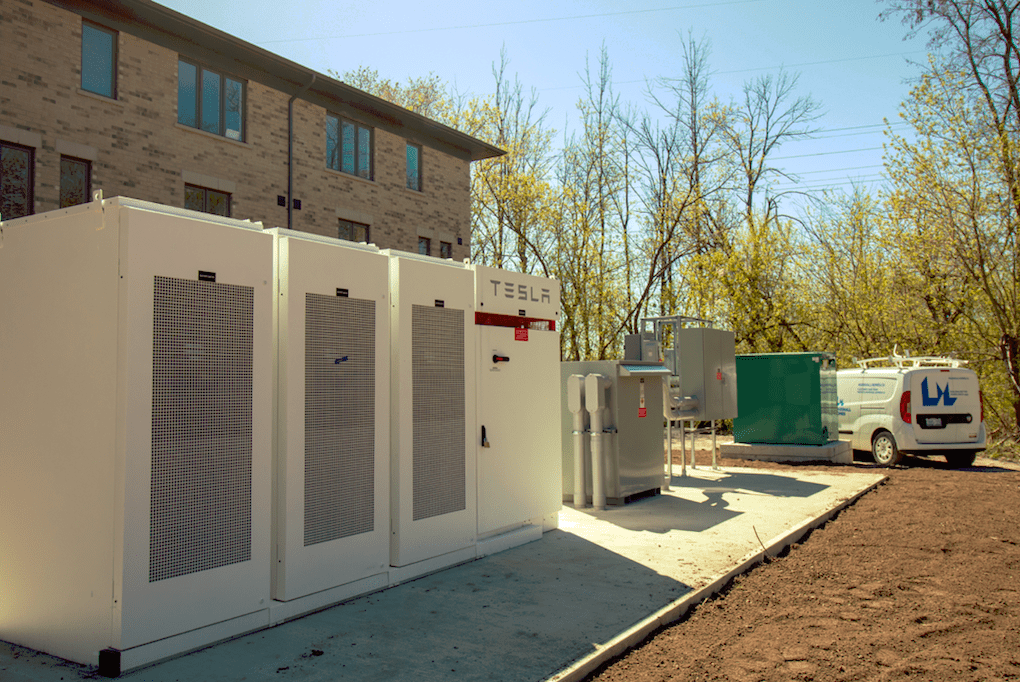The post ‘Smart Microgrid Community’ Takes Shape in Canada appeared first on POWER Magazine.

Many areas across the globe are looking providing non-traditional power to residential neighborhoods, part of a push to make a community’s electricity supply more reliable and resilient. A development in Canada is one model of what is known as a “smart microgrid community.”
Elexicon Energy, the fourth largest municipally-owned electricity distributor in Ontario, along with real estate developer and builder Marshall Homes, and Canada’s Opus One Solutions, a global cleantech company, have partnered to create a “living smart grid” pilot community called Altona Towns. The project is supported by Ontario’s Ministry of Energy, Northern Development, under the Smart Grid and Grid Innovation funds.
The partners in May announced the project as the first planned nested microgrid installation in Canada that will integrate a full-scale, operational smart residential energy system. Altona Towns will “test, develop and launch the next generation of technologies that can turn electricity distribution systems into modern, digitally enabled grids,” according to the partners, who said the project could provide a blueprint for using microgrids to power thousands of homes.
Rooftop Solar, Battery Storage
The Altona Towns development, located in Pickering, Ontario, will include rooftop solar, lithium-ion battery energy storage, electric vehicle charging stations, an innovative smart metering system for community use, and an integrated distribution energy service platform to control and coordinate the components of the microgrid. The developers said the microgrid project is the result of “four years of planning, implementation, and technology and equipment installation. It will provide homeowners with increased energy resiliency and reliability, especially during power outages, while also offering an exciting alternative to conventional sources for power that are cleaner, economical and adaptable to future climate change impacts.”

“Altona Towns was built to provide infill housing for the fast-growing community of Pickering, Ontario. In keeping with a provincial and municipal policy encouraging intensification of existing urban areas, it was being designed as medium-density housing,” Craig Marshall, CEO of Marshall Homes, told POWER. “It was on the drawing board when we heard about the idea for a microgrid demonstration project. As an environmentally-conscious homebuilder with a long track record of innovative, energy-efficient design, we loved the idea and the possibility that the development could serve as the catalyst for similar communities in the future. The technical problems it addressed—how does a utility effectively take advantage of distributed energy generation and storage in the future?—intrigued us and we wanted to play a part, if we could, for our community and for our children.”
The development includes 27 townhomes—in this case, 27 electricity customers, with an untold number of residents. The microgrid uses solar panels from Solera, batteries from Tesla, and EV chargers from Ontario-based SWTCH Energy, a company that provides EV charging and energy management solutions designed specifically for high-density urban areas.
Integrating Clean Energy
Falguni Shah, vice president of Technology and Innovation at Elexicon Energy, told POWER, “Elexicon’s Smart Community Nested Microgrid is an innovative microgrid project that will successfully integrate multiple sources of residential clean energy while maximizing load efficiencies and energy utilization levels for our customers.” Shah said the community microgrid “serves as the ideal opportunity for Elexicon to further highlight and enhance the integration of renewables with microgrid operation into Ontario’s energy landscape. It’s also the important step in developing a system that will allow microgrids to be added to utility distribution grid that will improve the quality of life for customers, grid reliability and resilience.”
Shah said Elexicon Energy will gather insights and lessons learned from the microgrid deployment, starting from the distribution substation down to the local community, through the use of GridOS, which is Opus One’s distributed energy management software platform. GridOS is modular, scalable, and integrates with existing data systems to support distributed energy resources, including renewable generation, energy storage, and demand response. The platform also facilitates the management of microgrids to help deliver grid resiliency. The system will provide information about how and when electricity is used, and how willing homeowners are to shift their energy consumption habits if needed. The Opus One software will be integrated into Elexicon Energy’s electricity distribution operations, “incorporating microgrid-assisted feeder automation capabilities to enable automated control features such as peak shaving, load shifting, islanding, demand response, and voltage control,” according to the companies.

Hari Suthan, chief strategic growth officer for Opus One Solutions, a software engineering and solutions company, said his group’s GridOS “energy transition software platform … will be integrated into Elexicon Energy’s electricity distribution operations to advance planning for a smart community infrastructure that increases network resiliency, reduces carbon emissions, and decreases energy costs.” Suthan told POWER that “the development of this smart community microgrid establishes procedures that will digitize energy systems and accelerate decarbonization, acting as a blueprint for the future of Seaton community in Pickering that could house up to 15,000 homes.”
“With climate change a key concern in our era, Elexicon Energy [owned by five Canadian municipalities] is looking to develop an industry model for a smart grid, with the hopes this project will increase energy distribution reliability and contribute to net-zero emissions targets for Canada by enabling wide-scale smart grid implementation in the near future,” said Shah.
—Darrell Proctor is a senior associate editor for POWER (@POWERmagazine).
The post ‘Smart Microgrid Community’ Takes Shape in Canada appeared first on POWER Magazine.